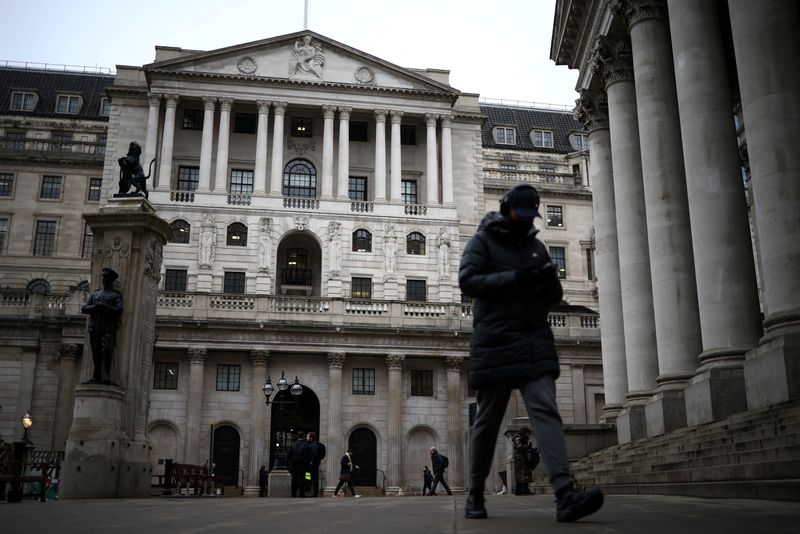By William Schomberg
LONDON (Reuters) – One in all Britain’s main employers’ teams on Friday minimize its estimate for financial progress subsequent yr as a result of measures within the new authorities’s first funds, placing a gloomier word than different current forecasts.
Progress in 2025 is now seen at 1.6%, the Confederation of British Business (CBI) mentioned, down from a projection of 1.9% made in June. The expansion outlook for this yr was trimmed to 0.9% from the June forecast of 1.0%.
“Measures in the autumn budget will increase firms’ costs at a time when their profit margins have already been under pressure,” Louise Hellem, the CBI’s chief economist, mentioned.
“Many businesses have told us that these measures will likely push up prices and weigh on their hiring and investment plans going forward.”
Finance minister Rachel Reeves introduced in her Oct. 30 funds that employers should pay greater social safety contributions for his or her staff from April, which can be when the minimal wage is because of rise by virtually 7%.
Many companies have mentioned the upper prices will threaten Prime Minister Keir Starmer’s plan to hurry up the economic system.
The Financial institution of England mentioned on Thursday that greater than half of corporations collaborating in a survey deliberate to lift costs and minimize jobs in response to the funds.
On Thursday, Starmer mentioned his authorities was doubling down on its progress ambitions.
One other employers group, the British Chambers of Commerce, mentioned on Wednesday that 2025 was more likely to be tough because of the enhance in employment prices and potential tariffs on exports as soon as Donald Trump turns into U.S. president.
Nevertheless, not like the CBI, the BCC revised up its forecast for progress in 2025 to 1.3% from a earlier estimate of 1.0%.
The OECD additionally this week raised its forecasts for Britain’s financial progress in 2025 to 1.7% from 1.2% beforehand.
The CBI mentioned enterprise funding would decide up in 2025 however sluggish barely in 2026, reflecting the upper employment prices and the “crowding out” impact from greater public funding.
Inflation would stay above the BoE’s goal till at the least 2027, pushed up partly by the upper labour prices which might additionally weigh on personal sector employment and lead to a larger share of employment progress coming from the self-employed.
Wage progress was set to weaken and the BoE would minimize its benchmark Financial institution Fee slowly to three.5% by late 2026 from 4.75% now.

General financial progress in 2026 was seen at 1.5%.
The CBI’s forecasts assumed Britain avoids additional U.S. commerce tariffs however the impression on progress and inflation could be marginal if the nation was dragged right into a commerce struggle, it mentioned.




